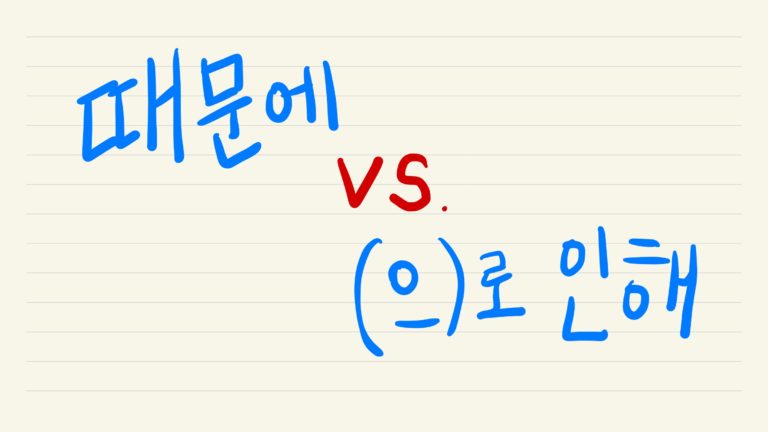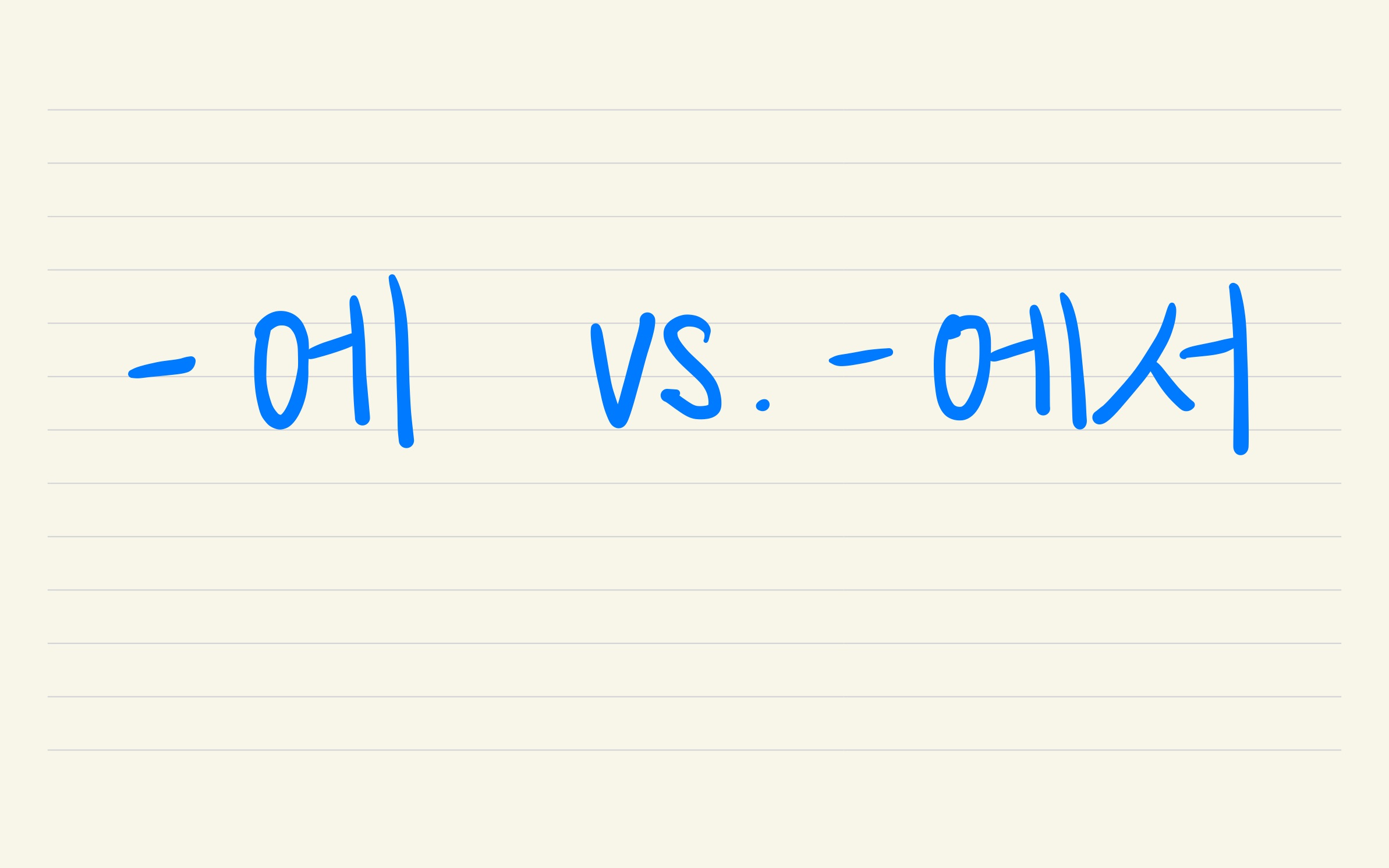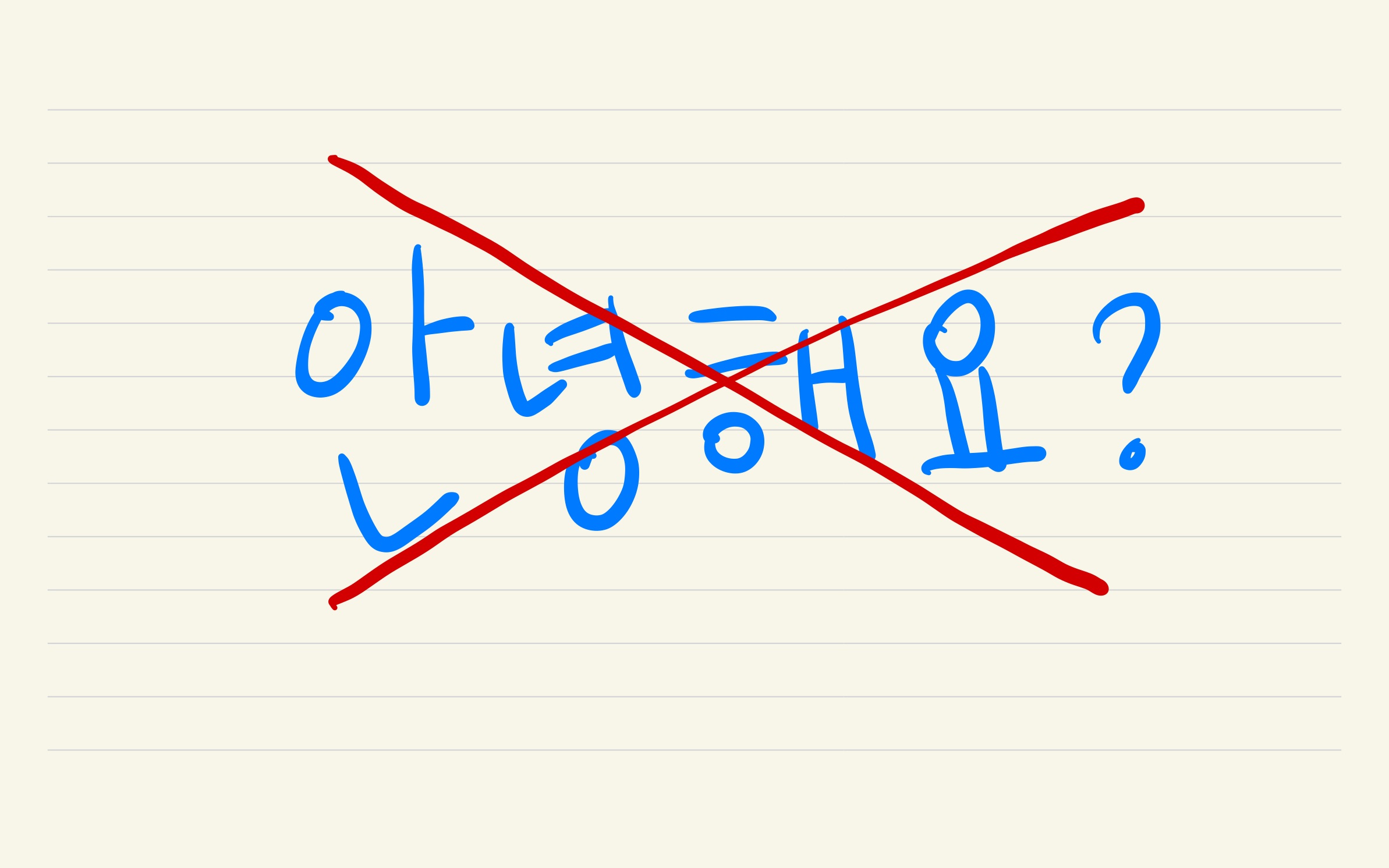Have you ever wondered why there are so many types of ‘Because’ in Korean?
Even in brief consideration, not only the most representative ‘때문에’, but also ‘니까’, ‘여서/이어서/(이)라서’, ‘왜냐하면’, ‘느라고’, etc. It’s not one or two. Some of them have no difference in usage, and some have different usage. Then, what about ‘(으)로 인해’? Let’s compare ‘때문에’, the most representative of Because, and ‘(으)로 인해’.
First of all, ‘때문에’ and ‘(으)로 인해’ are both expressions that indicate the cause or reason. And depending on the sentence/context, they can be replaced. Shall we first check out examples of sentences that can be replaced?
"너 때문에 우리는 실패했다(Because of you, we failed)."
In this sentence, ‘때문에’ implies criticism. And it points out that the cause of our failure is ‘you’.
"너로 인해 우리는 실패했다(Because of you, we failed)."
How about this sentence? The message that ‘the cause of our failure is you’ does not change. In other words, they can be replaced in this case. However, if you were Korean, you would feel at once that this sentence was not a sentence that could be used in everyday life. ‘때문에’ can be used in everyday conversations and even in somewhat formal situations, but ‘(으)로 인해’ is not. ‘(으)로 인해’ sounds somewhat poetic/literary. Therefore, there is a difference in that ‘(으)로 인해’ is mainly used in official documents or academic writings.
If you think of it as a word to a friend, you can feel a more certain sense of incongruity.
“지난 달에 있었던 교통사고 때문에 아직도 병원에 다녀(I still go to hospital because of the traffic accident last month).”
It sounds natural.
“지난 달에 있었던 교통사고로 인해 아직도 병원에 다녀(I still go to hospital because of the traffic accident last month).”
The grammar is not wrong, but Koreans don’t talk like this. So how should ‘(으)로 인해’ be used? As I mentioned, remember the keywords ‘official’ or ‘artistic’ or ‘academic’. Imagine a reporter holding a microphone and reporting in front of an intersection. The reporter will probably say this,
“1시간 전 발생한 교통사고로 인해 도로는 아직도 마비 상태입니다(Because of a traffic accident that occurred an hour ago, the road is still tied up).”
Another difference is whether it is only possible with a negative message.
‘때문에’ tends to be used when the cause leads to a negative result.
“SNS 때문에 사람들이 점점 불행해지고 있다(People are getting more and more unhappy because of SNS).”
It sounds natural. The fact that people are becoming unhappy is a negative result.
“SNS 때문에 우리는 정보를 더욱 손쉽게 얻을 수 있다(Because of SNS, we can get information more easily).”
It sounds weird. ‘때문에’ is not appropriate when talking about the positive effects brought by SNS. However, if this sentence is going to be in a news article,
“SNS로 인해 우리는 정보를 더욱 손쉽게 얻을 수 있다(Because of SNS, we can get information more easily).”
You can confirm that ‘(으)로 인해’ is used correctly both grammatically and in terms of usage. The usage of ‘(으)로 인해’ does not depend on whether the result is negative or positive.
If you think further, ‘때문에’ has an implicit feeling of blaming and questioning the responsibility for the cause that led to the result, but ‘(으)로 인해’ has a feeling of focusing only on the cause and result while excluding emotions.
Then here’s the question! Among the first examples, “너 때문에 우리는 실패했다.” and “너로 인해 우리는 실패했다.”, which one has a stronger tone of blame?




[…] 이렇게 줄임말을 쓰지 않고, ‘갈증으로 인해(때문에 vs. (으)로 인해) 목구멍이 불에 타는 것 같다’라고 말했다면 원어민이 아니더라도 […]